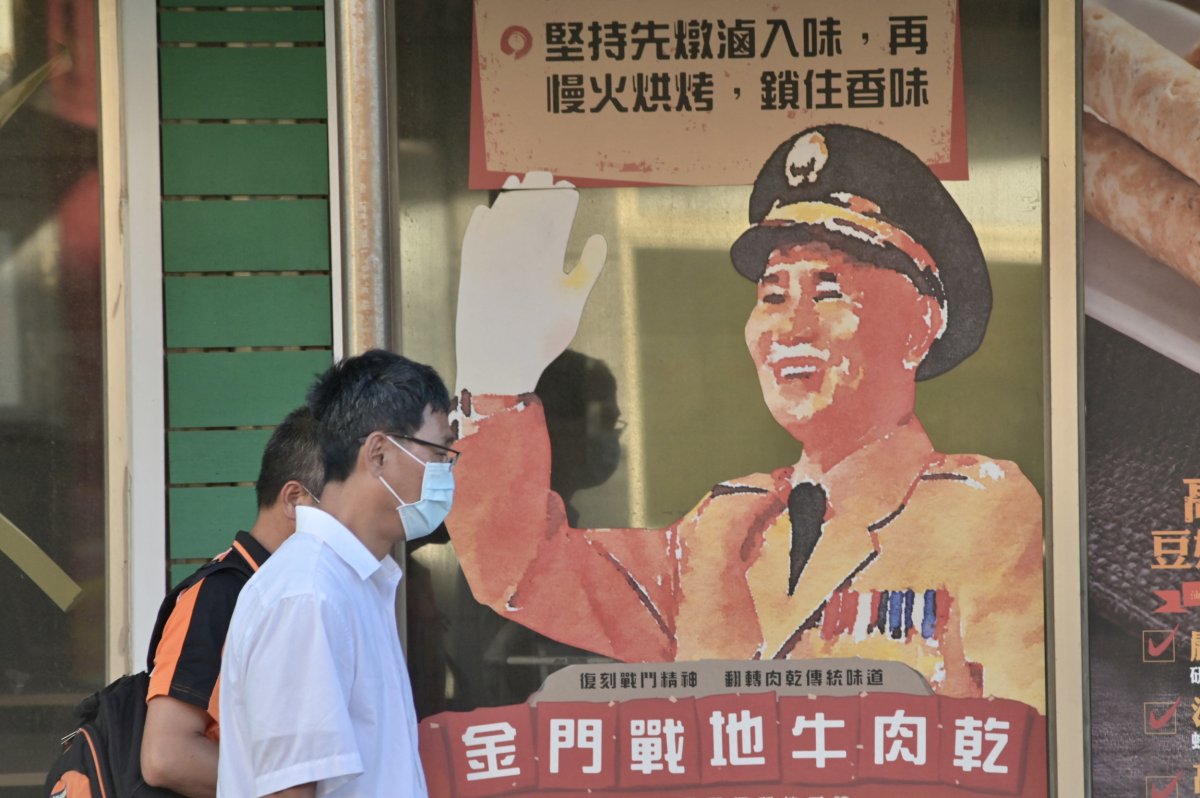The circuitous route taken by House Speaker Nancy Pelosi's plane from Kuala Lumpur to Taipei, flying on the eastern side of the Philippines so as to completely avoid the South China Sea and a possible interdiction or clash with Chinese military forces, was gripping drama. Flightradar24, a popular flight tracking website, reported that 2.92 million people followed at least a portion of her flight. But her after-dark arrival in Taipei isn't just a one-off provocation from Washington to Beijing. To the contrary, it's the most recent example of Washington paying only lip service to commitments made to the One China policy and the 1972 Shanghai Communique.
The communique laid the groundwork for China's reengagement with much of the world, as well a peaceful relations between Beijing and the United States. This has led to a period of unprecedented Chinese economic growth and human development. But actions taken by both the Trump and Biden administrations call into question U.S. commitments to the 50-year-old agreement.
The Shanghai Communique, a diplomatic agreement signed by the two countries, was the culmination of President Richard Nixon's groundbreaking 1972 trip to China. It acknowledged and did not challenge the Chinese view that "there is but one China and that Taiwan is a part of China." That position was later reflected in the 1979 Sino-U.S. diplomatic recognition agreement that established only "unofficial" U.S. relations with Taiwan. When coupled with a commitment to provide U.S. military aid and weapons sales to the island but uncertainty as to whether the U.S. would actually intervene militarily in a cross-Strait conflict (the position of so-called "strategic ambiguity" contained in the Taiwan Relations Act of 1979), these foundations of U.S. policy helped ensure a stable U.S.-China relationship and deterred the possibility of a Chinese military takeover of Taiwan. It also made possible China's part of the bargain: Beijing would drop its emphasis on efforts to "liberate" Taiwan by force and pursue peaceful unification as a top priority, without relinquishing its option to employ force under different circumstances in the future.
Biden's comments earlier this year that the U.S. would militarily defend Taiwan if it were attacked by China—interpreted as a rejection of Strategic Ambiguity, potentially a violation of the Shanghai Communiques' statement that all U.S. forces would eventually be withdrawn from Taiwan and a deviation from the 1979 Taiwan Relations Act's stipulation that a Chinese threat to Taiwan would be assessed by the President and a response developed in consultation with Congress—all necessitated walk-backs and assurances that the U.S. still abides by the One China policy.

Pelosi's trip to Taiwan comes perilously close to violating that policy once again, referring to Taiwan as a "country" in her remarks while on the ground in Taiwan. Despite the White House's assurances that Pelosi was acting in her own capacity, her role as the third highest U.S. government official and second in the presidential line of succession traveling on a U.S. government aircraft and referring to the trip as "official" on her website, had all outward appearances of a state-visit to Taiwan and U.S. diplomatic recognition of the breakaway Chinese province.
China, in retaliation, launched a series of military exercises with closure zones that ringed Taiwan for the first time, fired missiles directly over the island and suspended or canceled a variety of U.S.-China military dialogues and bilateral climate change talks, reactions which while unjustified, are also not unprovoked.
Providing verbal reaffirmation of the One China policy and Shanghai Communique is necessary, yet again, particularly after Pelosi's trip and her muddled statement that the U.S. supported "the communiques, this that and the other thing that have gone before," in her press conference alongside Taiwan President Tsai Ing-wen.
But more must be done by the Biden administration to prevent another geopolitical crisis alongside the war in Ukraine. Serious efforts must be undertaken to stabilize the U.S.-China relationship and develop crisis management mechanisms and force posture reforms in the South China Sea to deter a direct Chinese attack on Taiwan while avoiding provocations that might spark an ill-advised military response from Beijing.
Pelosi's plane completely avoiding the South China Sea is a vivid example of why the U.S. and China must address the dangers of a crisis, intentional or accidental. Negotiating and implementing a robust maritime crisis-management mechanism with China should be a top priority for U.S. diplomats.
Uncertainty about U.S. intentions in the region by Beijing, as well as the need to reduce a ballooning U.S. defense budget that is more than three times that of China, could be assuaged by adopting a strategy of "active denial." That strategy would focus U.S. military strategy in the Asia Pacific on deterring potential aggression, enhancing stability, limiting risks of nuclear escalation, and remaining affordable under increasingly tight fiscal constraints. This would entail cuts to Army and Marine force structures in East Asia and emphasize Air Force and Navy capabilities in the region.
The 21st century holds existential threats to mankind. Some, like climate change, will require large-scale collaboration, particularly between the two largest greenhouse gas emitters, the U.S. and China, and, as Putin's nuclear threats earlier this year reminded us all, the threat of a nuclear exchange continues to pose a threat to global stability and human survival.
Now, more urgently than ever, is time to reaffirm the Shanghai Communique and the One China policy and find new ways to deepen U.S. and Chinese engagement on a host of shared security, economic and environmental concerns.
Eli Clifton is a senior advisor at the Quincy Institute and investigative journalist at large at Responsible Statecraft.
The views expressed in this article are the writer's own.
CORRECTION 8/19/22: An earlier version of this article misstated China's obligations under the Shanghai Communique.
Uncommon Knowledge
Newsweek is committed to challenging conventional wisdom and finding connections in the search for common ground.
Newsweek is committed to challenging conventional wisdom and finding connections in the search for common ground.
About the writer
To read how Newsweek uses AI as a newsroom tool, Click here.






